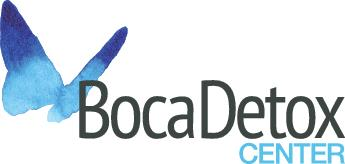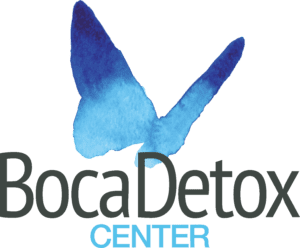Convincing a loved one to accept treatment at an addiction rehab facility can be a challenging and emotional process. It often requires seeking education, planning an intervention, and locating an appropriate treatment program. You will need to approach the individual non-judgmentally with compassion and concern and show them that you will provide help and support, both now and in the future.
Recovery is a lifelong journey, and your loved one will need your encouragement every step of the way. Boca Detox Center offers medical detox, a safe process for drug and alcohol withdrawal, and the option to transition directly into an intensive outpatient treatment program or into a more intensive level of care. If you have a loved one struggling with addiction, contact us today to learn more about our addiction recovery services.
How To Spot Drug Misuse in a Loved One’s Behavior
Addiction is not always obvious, as those struggling often go to great lengths to conceal their behavior. However, there are several common signs that may indicate a loved one is misusing drugs or alcohol, which may warrant further investigation or a one-on-one conversation.
Examples of Signs of Addiction Include:
- Physical Changes—Bloodshot eyes, dilated or constricted pupils, sudden weight loss or gain, or changes in sleep patterns.
- Behavioral Changes—Increased secrecy, withdrawal from friends and family, or sudden mood swings.
- Priority Changes—Neglect of work, school, or family obligations in favor of substance use.
- Financial Issues—Unpaid bills or frequent requests for money.
- Legal Issues—DUI charges or drug-related arrests.
Social Group Changes—Spending time with a new group of friends, particularly those who engage in drug use.
Expressing the Need for Treatment to a Loved One
Conveying the need for addiction treatment to a loved one can be a sensitive and tough conversation, but there are many strategies you can take to help you cautiously and effectively communicate your concerns.
Tips for Talking to a Loved One About the Need for Treatment:
- Choose an appropriate time and place where both of you can be relaxed and comfortable. Avoid confronting them when they are intoxicated.
- Use personal “I” statements to express your concerns (e.g., “I’m concerned about you”) instead of being accusatory.
- Let them know that you will help them research treatment options until they find the one most suitable.
- Do not make demands such as “get treatment or else.” This is rarely effective.
- Be prepared for resistance. Be kind but steadfast in your conviction that treatment is essential.
- Educate yourself about available addiction treatment options so you can answer their questions and provide them with information.
Finding Addiction Treatment & Therapy Options
It’s important to take the time to research treatment options to find the one most suitable for your loved one and help them make decisions regarding their next steps.
Ways to Find Treatment Options Include:
- Consult with a health provider who can assess their condition and provide referrals and treatment information.
- Check with their health insurance provider to determine if they cover treatment and what options may be included.
- Search online directories to help find addiction treatment centers in your area, such as the Substance Abuse and Mental Health Services Administration (SAMHSA) treatment locator. (1)
- Contact a treatment helpline, such as SAMHSA at 1-800-662-HELP. (2)
- Ask for referrals from trusted sources, such as family or friends who have experience with addiction treatment and may be able to provide information or recommendations.
Common Addiction Treatment Program Options Include:
- Inpatient Rehab—Also known as residential rehab, this program involves living at a treatment facility for a set period of time, typically 30 to 90 days. This option provides intensive therapy and support, and is generally recommended for those with severe addiction or psychiatric disorders.
- Outpatient Rehab—Outpatient programs involve attending therapy sessions on an outpatient basis (clients do not live at a facility full-time).
- Individual Therapy—Cognitive-behavioral therapy (CBT), motivational interviewing, and other behavioral therapies can help individuals address underlying issues and develop coping skills to manage cravings and triggers.
- Group Therapy—Group therapy, including 12-step programs, provides a supportive community that allows individuals to connect with others also in recovery.
Family Therapy—Family therapy involves family members coming together to address addiction’s impact on the family system and promote healthier communication.
Overcoming Treatment Obstacles
Remember that recovery is a challenging process, and setbacks are a natural part of the journey. With persistence and support, your loved one can overcome obstacles and sustain long-lasting sobriety.
Tips for Helping Loved Ones Overcome Obstacles Include:
- If your loved one is struggling with motivation, remind them of the benefits of sobriety and the adverse consequences of continuing to use drugs or alcohol. Help them set attainable goals and celebrate their progress.
- Denial is a common first-line reaction to the idea of addiction. It can be difficult to get through to a person who has built a wall of denial, and this is where patience and continued efforts to help them understand their condition and its effects become critical.
- If they feel as if they are dealing with stigma, encourage them to seek support from non-judgmental sources, such as peer support groups, mental health professionals, or addiction specialists.
- If they are facing financial barriers to treatment, research free or low-cost treatment options, such as state-funded programs or sliding scale fees.
- If they relapse, encourage them to seek support immediately. They may need additional treatment or have their aftercare plan adjusted.
Helping & Encouraging Your Loved One Throughout the Treatment, Recovery, & Relapse Prevention Process
Addiction recovery is a journey, and it’s important to be patient and supportive throughout the process. With your support, your loved one can overcome addiction and achieve lasting sobriety. If you have a loved one who is going through addiction treatment and recovery, here are some ways you can support them:
- Offer Emotional Support & Motivation—As often as possible, let your loved one know you are there for them and that you support their recovery. Celebrate milestones like completing a treatment program, which can foster continued motivation.
- Listen Closely—Listen to your loved one attentively and encourage them to express their feelings and thoughts openly.
- Help With Tasks—To relieve stress, offer to help with tasks such as childcare, cooking, or transportation to appointments.
- Attend Meetings or Therapy—Consider attending therapy or support group meetings with your loved one to help you better understand their experience.
- Set Boundaries—Communicate the limitations of your support respectfully and actively avoid enabling your loved one’s addiction.
- Identify Triggers—Helping a loved one recognize temptations and triggers to use drugs or alcohol means identifying certain people, places, or activities.
Encourage Continuing Treatment and Aftercare—To help prevent relapse, urge your loved one to continue therapy or support group meetings, even after they’ve completed an intensive treatment program.
Co-Occurring Disorders That May Be Present
Addiction is often associated with co-occurring mental health disorders, also known as dual diagnoses. These issues need to be addressed in combination with substance use issues if treatment is going to be effective and psychological wellness, long-lasting.
Common Co-Occurring Mental Health Conditions Include:
- Depression—Major depressive disorder, seasonal affective disorder, and other mood disorders that cause persistent feelings of sadness, hopelessness, and loss of interest in activities. (3)
- Anxiety Disorders—Generalized anxiety disorder, panic disorder, and social anxiety disorder, which are marked by excessive and continuous worry or fear. (4)
- Bipolar Disorder—A mood disorder characterized by cycling episodes of mania and depression. (5)
- Post-Traumatic Stress Disorder (PTSD)—A potentially severe psychiatric condition that can develop after a person experiences or witnesses a traumatic event. (6)
Attention-Deficit/Hyperactivity Disorder (ADHD)—A neurodevelopmental disorder marked by inattention, trouble focusing, low motivation, and impulsiveness. (7)
Contact Us Today To Get Help for Your Loved One
It can be a challenge to get a loved one into treatment, but with encouragement, patience, and the right approaches, it is entirely possible and may be absolutely vital. Addiction is a chronic, relapsing brain disease that encompasses much more than just a matter of morals or willpower. This is why it is so important to ensure a friend or family member with this condition feels loved and supported and that treatment can provide them with an excellent opportunity to pursue change, regardless of the severity of their condition.
If your loved one is struggling with addiction to drugs or alcohol, we urge you to contact Boca Detox today to learn more. We are dedicated to providing high-quality medical detox and support to clients who are motivated to take the next step and transform their relationships and lives.

Reviewed for accuracy by:
Susan Shirley
LMHC
Serving as the Inpatient Clinical Director at Immersion Recovery Center, Susan will work directly with staff members, clients, and family members to ensure the clinical program remains as effective and individualized as possible. Susan is no stranger to the fields of behavioral health and addiction. She has over 25 years of experience, working in an inpatient setting, an outpatient setting, acute stabilization and nearly all other settings in the realm of addiction recovery.





















